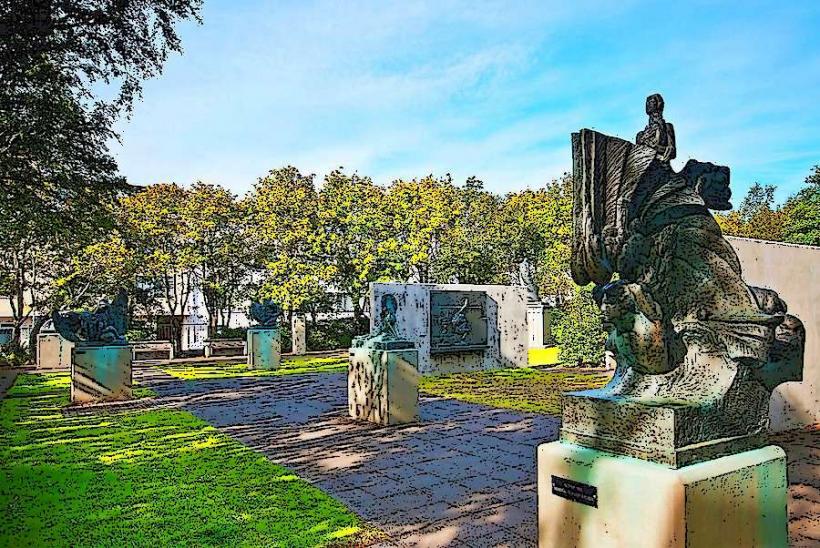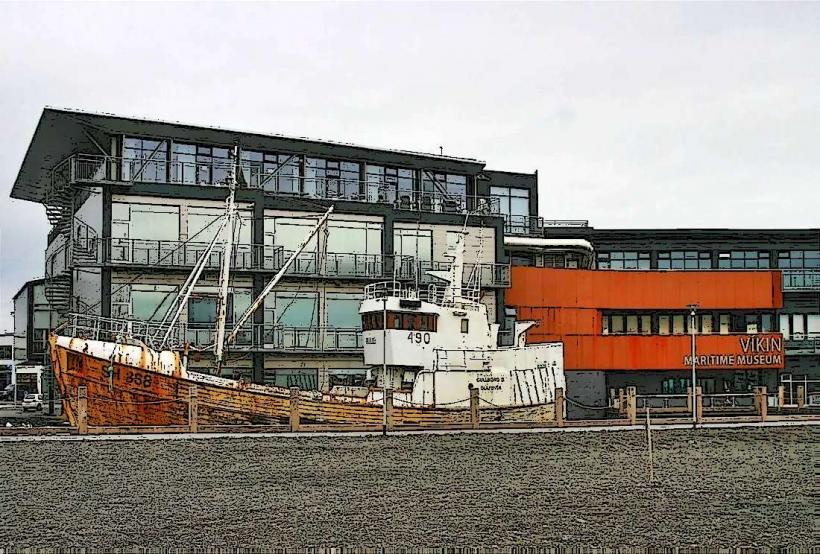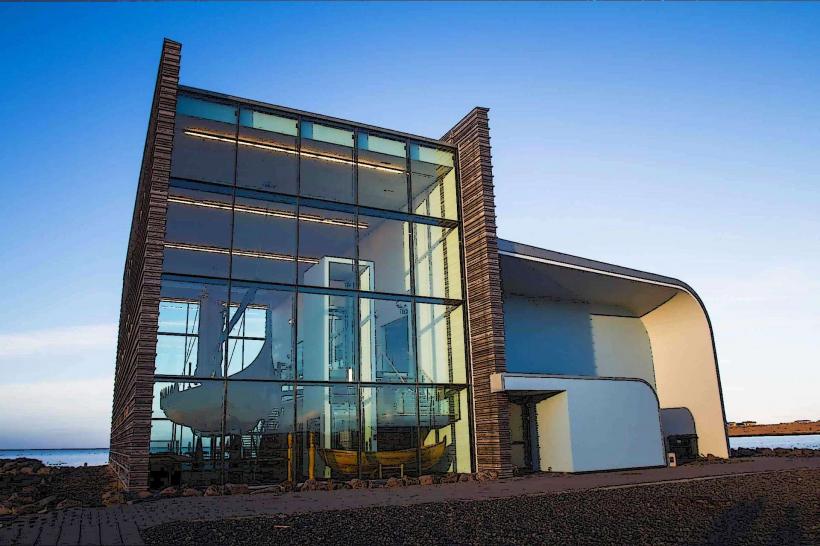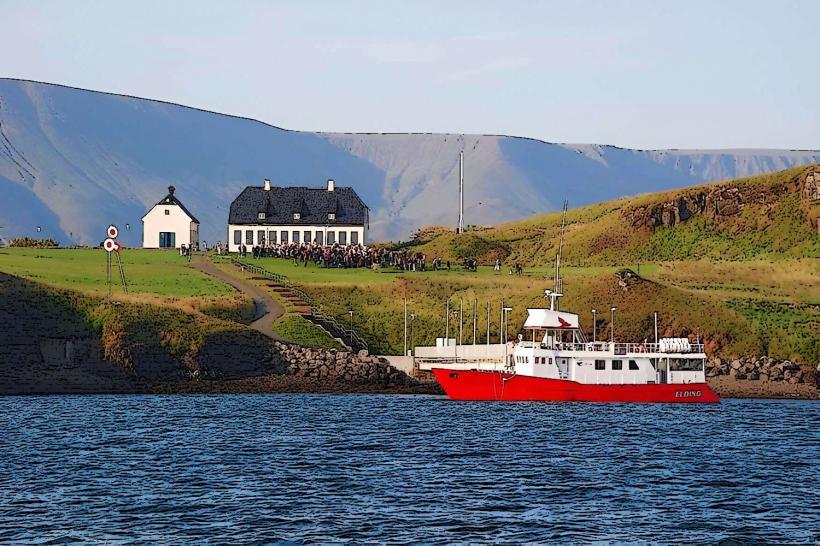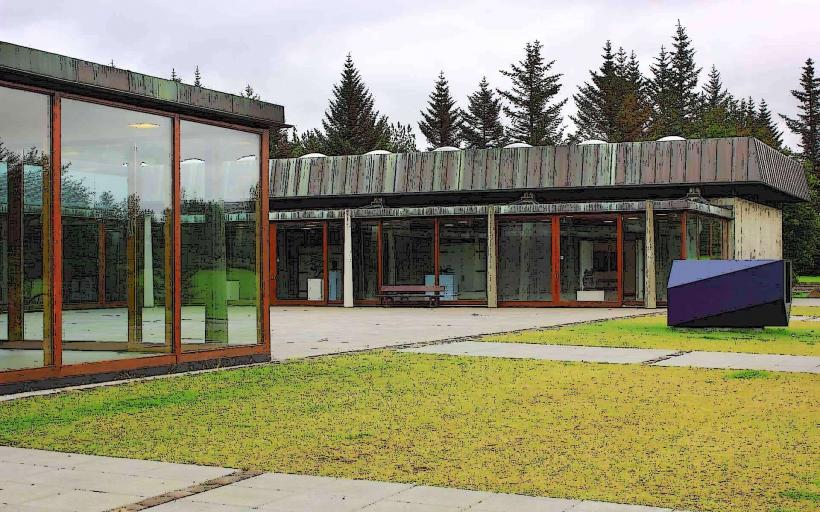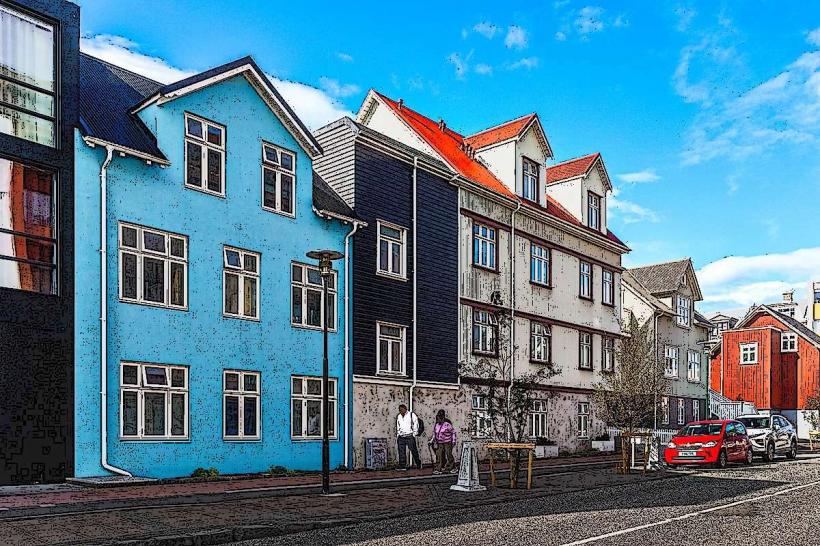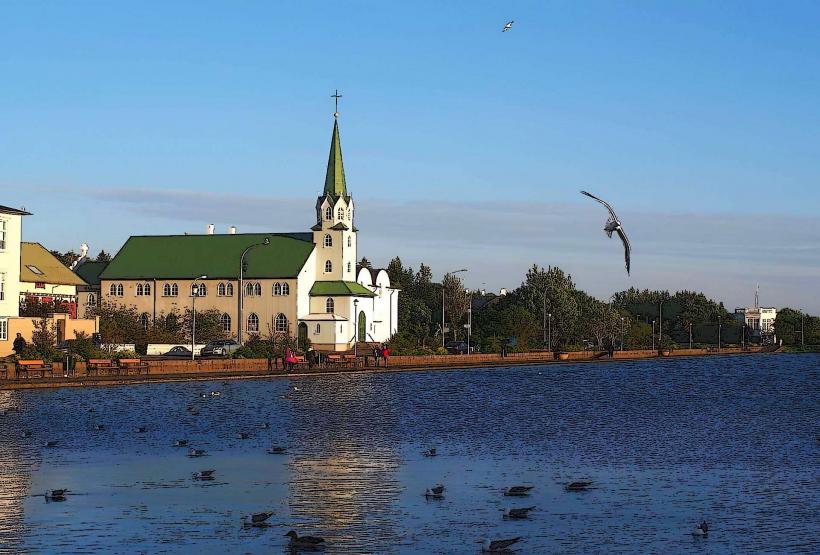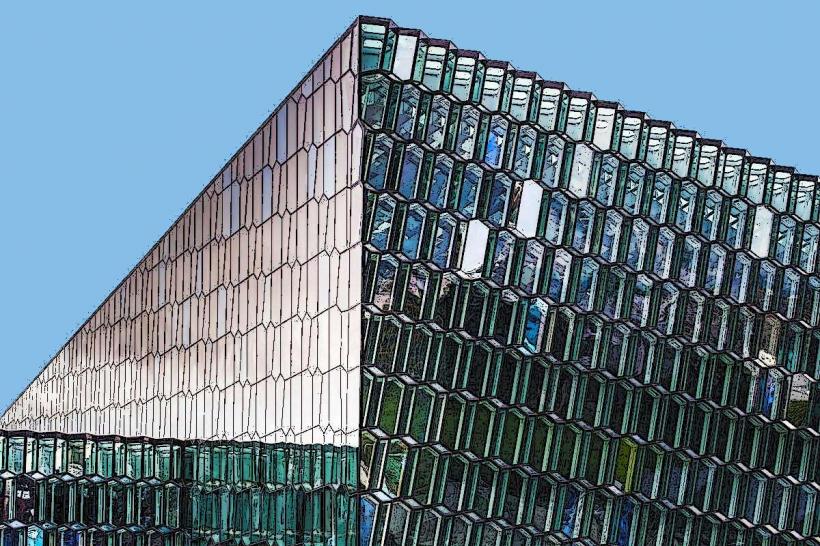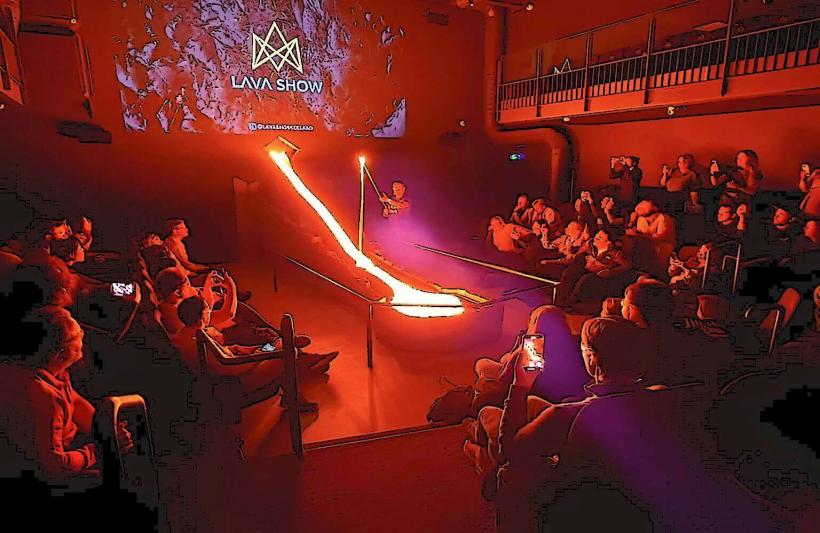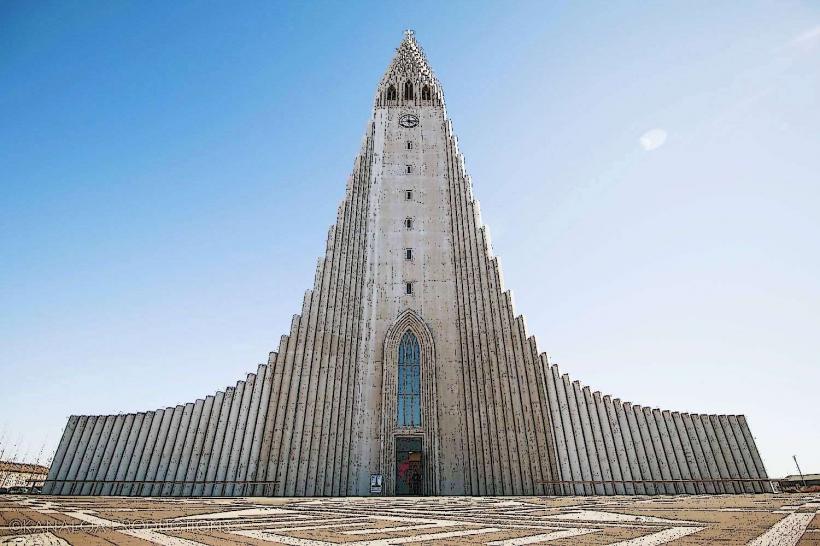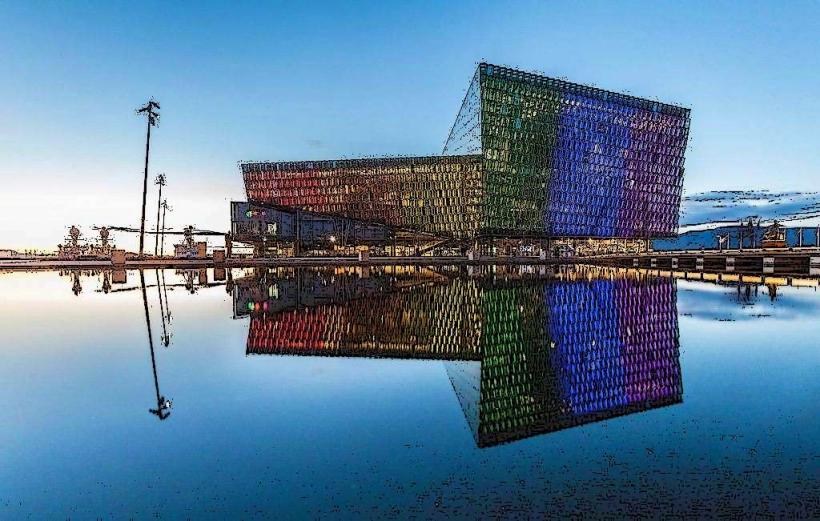Information
Landmark: Sun Voyager (Sólfar)City: Reykjavik
Country: Iceland
Continent: Europe
Sun Voyager (Sólfar), Reykjavik, Iceland, Europe
The Sun Voyager (Sólfar) is a large stainless steel sculpture located on the waterfront in Reykjavik, Iceland. It depicts a dreamboat, an ode to the sun, symbolizing discovery and hope.
Visual Characteristics
The sculpture is constructed from polished stainless steel, giving it a reflective, silver appearance. It measures approximately 4 meters in length and 2 meters in height. The design is abstract and modern, resembling the skeletal framework of a boat or a stylized longship, with a prominent mast-like structure at its center.
Location & Access Logistics
The Sun Voyager is situated on Sæbraut, the coastal road along Reykjavik's northern waterfront. It is located approximately 1 kilometer east of the Harpa Concert Hall and 1.5 kilometers east of the central Laugavegur shopping street. Limited street parking is available along Sæbraut. Public transportation includes local bus routes; the "Sólfar" bus stop (Line 14) is directly adjacent to the sculpture. Other bus lines stop at Harpa, requiring a 10-15 minute walk.
Historical & Ecological Origin
The sculpture was designed by Jón Gunnar Árnason and unveiled in 1990. It was the winning entry in a competition to commemorate Reykjavik's 200th anniversary. The artist intended the piece to represent a dream boat, an ode to the sun, symbolizing light, hope, and the promise of new, undiscovered territory, rather than a historical Viking ship.
Key Highlights & Activities
Observation of the sculpture from various angles is the primary activity. Photography is common, particularly utilizing the ocean and Mount Esja as a backdrop. The sculpture is integrated into a coastal walking path, allowing for strolls along the waterfront.
Infrastructure & Amenities
There are no dedicated restrooms or shade structures directly at the sculpture site. Public restrooms are accessible at nearby establishments such as the Harpa Concert Hall, located 1 kilometer to the west. Strong 4G/5G cell phone signal is available. No permanent food vendors are present at the immediate location; cafes and restaurants are within a 10-15 minute walk towards the city center.
Best Time to Visit
For optimal photography, visit during sunrise or sunset to capture the sculpture with warm, dramatic lighting. The months of May through September offer milder weather and extended daylight hours. Winter visits provide opportunities for viewing the Northern Lights in conjunction with the sculpture. The site is not dependent on tidal conditions and is accessible at all times.
Facts & Legends
Despite its common interpretation, the artist Jón Gunnar Árnason explicitly stated that the Sun Voyager is not a Viking ship but rather a dream boat, an ode to the sun, symbolizing hope and discovery. A specific tip for visitors is to approach the sculpture from the east in the morning to observe the sunrise through its structure, aligning with the artist's intent.
Nearby Landmarks
- Harpa Concert Hall: 1.0 km West
- Hallgrímskirkja Church: 1.8 km Southwest
- Laugavegur (main shopping street): 1.5 km Southwest
- Perlan: 3.5 km South
- National Museum of Iceland: 2.5 km Southwest


